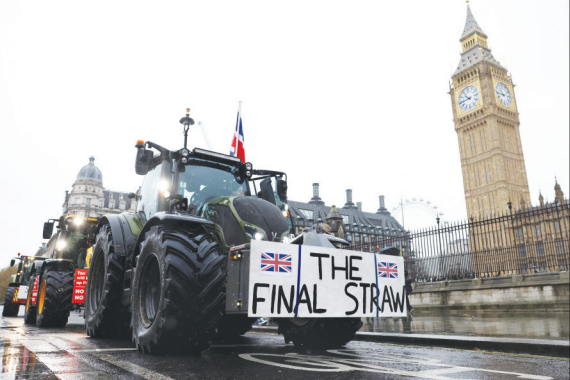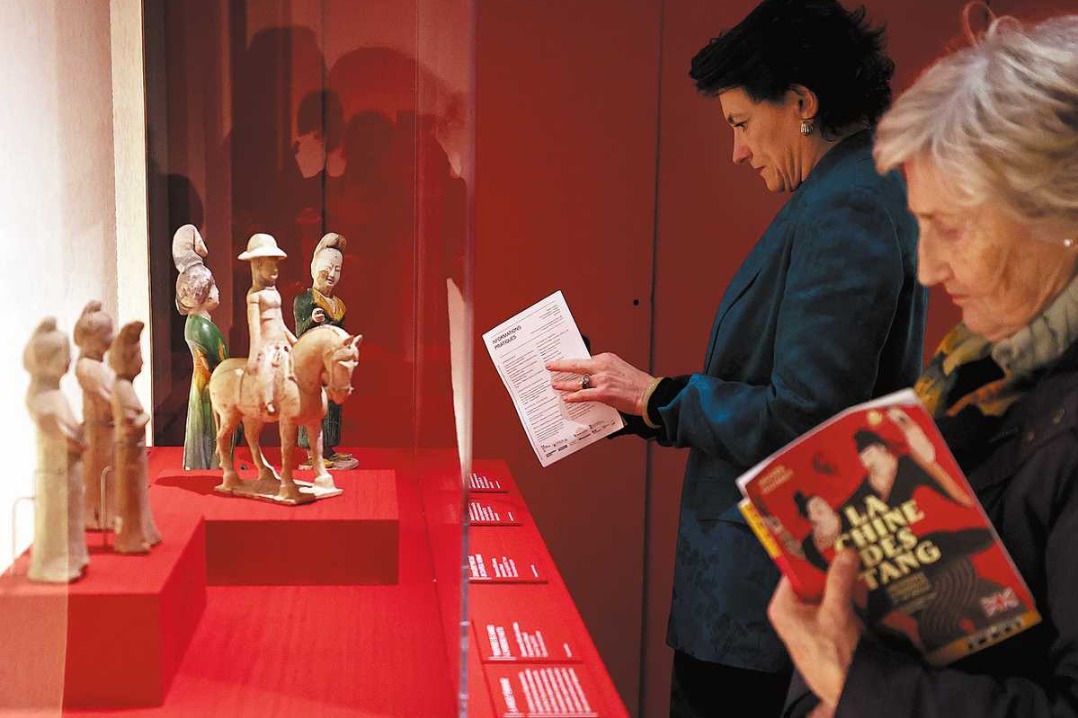Farmers protest in central London over tax changes


Farmers descended on central London on Tuesday to protest about recent changes to inheritance tax rules, which they say could leave them with large tax bills that could force them to sell off land, potentially threatening national food security. Since 1992, farms have had an arrangement allowing them to be passed through families without inheritors having to pay inheritance tax. This was to encourage people to keep working on the land and bolster food security.
Changes proposed in the budget, which was drawn up by Chancellor of the Exchequer Rachel Reeves, mean that from April 2026, inheritance tax of 20 percent, rather than the standard 40 percent, will be applicable for farms above a certain value. Any tax owed could be paid, interest-free, over 10 years, rather than immediately, as is the case for everyone else.
National Farmers' Union President Tom Bradshaw told Sky News that a year ago, Steve Reed, who is now secretary of state for the environment, food and rural affairs, told farmers these changes would not happen.
"He stood here a year ago at a conference in London and said that the government would not be changing agricultural property relief… this industry has been betrayed. They said they wouldn't make this change, then suddenly they've gone ahead and done it."
Bradshaw added that farmers are "asset rich but cash poor" and doing a vital job feeding the nation, but not making enough money doing so.
"We'd love to pay more tax, if we get proper margins from food production and we end up swelling the Treasury coffers — bring it on," he explained. "But at the moment, the supply chain doesn't give us those returns."
Speaking before the protest, Reed admitted to a reversal of his position since entering government and discovering the state of the nation's finances.
Stabilizing public services, he told the BBC, must be done "in a way that's fair and proportionate … it's only right to ask the very wealthiest farmers and those wealthy individuals who have been buying up agricultural land to avoid their own inheritance tax liability to pay their fair share".
Victoria Vyvyan, president of the Country Land and Business Association, said the new rules "could harm 70,000 United Kingdom farms, damaging family businesses and destabilizing food security", but that is the total number of farms of sufficient value ever to qualify for it.
The BBC's Verify unit estimates that each year, the number of farms likely to face such a bill is closer to just 500, a figure backed up by Paul Johnson, director of the independent economic think tank the Institute for Fiscal Studies.
"The changes will affect a remarkably small number of some of the most valuable farms," he told Sky News, adding that even under the proposed new rules, farms would still be receiving more generous treatment than in previous decades.
Speaking at the protest, Conservative Party leader Kemi Badenoch said farmers "need protection", and that "we understand you have been doing this all your lives and without you, we cannot eat".
"We know how this tax will destroy your way of life … and we will do everything we can — if they do not U-turn now — to reverse this tax," she said.
In a statement issued the day before the protest, Reeves defended the policy.
"The reforms to agricultural property relief ensure that wealthier estates and the most valuable farms pay their fair share to invest in our schools and health services that farmers and families in rural communities rely on," she said.

































